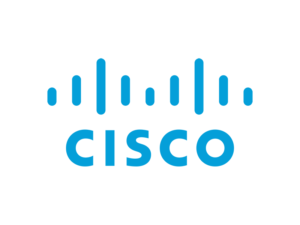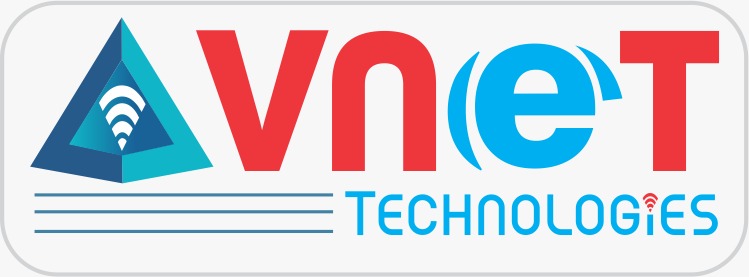Various methodologies, including black box, white box, and grey box approaches, provide diverse evaluation perspectives. Techniques like functional, performance, security, and usability testing uphold software integrity. A software testing course in Coimbatore at Edureka Learning Center equips professionals with essential skills to ensure software dependability, mitigate failures, and refine user experience.
Software Testing Courses in EDUREKA
Software Testing Course In Coimbatore – Why Edureka?
Edureka Learning Center stands as a distinguished hub for professional advancement, delivering meticulously curated courses tailored to industry demands. With an unwavering focus on experiential learning, immersive real-world projects, and mentorship from seasoned professionals, it empowers students with hands-on expertise and career-ready competencies. Designed for both novices and seasoned professionals, its adaptable learning pathways foster skill enhancement at every stage . The software testing in Coimbatore program delves into fundamental and advanced concepts, encompassing manual and automated testing, industry-standard methodologies, and state-of-the-art tools. Personalized guidance, dynamic interactive sessions, and robust placement support distinguish this program. Structured to mirror industry benchmarks, the curriculum ensures mastery of essential testing principles. For individuals aiming to excel in software testing in Coimbatore, Edureka Learning Center offers a seamless fusion of theoretical depth and applied learning, solidifying its reputation as a premier educational institution.
Software Testing Overview
Software testing is a structured approach to scrutinizing an application, detecting anomalies, validating functionality, and ensuring adherence to predefined specifications. It serves as a cornerstone in the development lifecycle, safeguarding software integrity, dependability, and security. Testing methodologies are broadly categorized into manual and automated approaches. Manual testing relies on human precision to execute test scenarios, while automation leverages advanced tools to streamline repetitive validations. Testing is conducted across multiple levels, including unit testing (analyzing isolated components), integration testing (assessing module interactions), system testing (evaluating holistic functionality), and acceptance testing (verifying alignment with user expectations). Methodologies such as black box testing (examining input-output behavior), white box testing (delving into internal logic), and grey box testing (a hybrid technique) enhance assessment rigor. Techniques like functional, performance, security, and usability testing fortify software resilience. For those seeking software testing and certification, Edureka Learning Center offers comprehensive training programs that equip learners with industry-recognized skills, ensuring expertise in real-world testing environments.

Certification
72% of Vnet Academy students appear for global certifications and 100% of them clear it.

LIVE Project
Get the opportunity to work on real-time projects that will provide you with deep experience.

Affordable Fees
At Vnet Academy, the course fee is not only affordable, but you can also pay it in installments

Placement Support
Dedicated placement support to bridge the gap between learning and earning.
We collaborate with 200+ leading IT companies of all cities in India











Inexperienced Fresher Becomes an Software Testing Professionals
Entering the tech industry without experience can feel overwhelming, but software testing and certification offer an accessible and rewarding pathway. Freshers with no prior exposure can gain expertise through structured training at Edureka Learning Center, hands-on projects, and real-world scenarios. By mastering both manual and automated testing, understanding key industry methodologies, and working with advanced tools, they develop the skills needed to excel in this domain. A solid grasp of quality assurance principles, combined with industry-recognized certification, significantly boosts employability and unlocks lucrative IT career opportunities. With persistence and continuous skill development, even a complete beginner can evolve into a proficient software tester, ensuring software reliability, security, and optimal performance. The right mentorship and comprehensive training at Edureka Learning Center transform an inexperienced fresher into a highly sought-after professional, ready to make a meaningful impact in the ever-advancing world of technology.
Our Training Methology
Methology 1
Experiential Learning – Immersive practical exercises and industry-driven projects foster a profound grasp of software testing principles and real-world applications.
Methology 2
Expert-Guided Instruction – Seasoned industry specialists deliver valuable insights, seamlessly connecting foundational theory with practical implementation strategies.
Methology 3
Comprehensive Curriculum – Structured learning pathways encompass core fundamentals to advanced methodologies, ensuring a holistic educational experience.
Methology 4
Dynamic Engagement – Interactive workshops, case study analyses, and in-depth Q&A sessions reinforce conceptual understanding and knowledge retention.
Methology 5
Real-Time Projects – Hands-on exposure to live industry projects equips learners with the expertise to navigate complex testing scenarios.
Methology 6
Real-Time Projects – Hands-on exposure to live industry projects equips learners with the expertise to navigate complex testing scenarios.
Methology 7
Career Advancement Support – Tailored resume crafting, intensive interview coaching, and dedicated job placement assistance facilitate seamless entry into professional roles
What are the Career Benefits of Learning Software Testing Certification Course at Edureka
Benefits 1
Early Bug Detection – Uncovers defects at the initial stages, preventing expensive fixes and ensuring a seamless, error-free user experience.
Benefits 2
Robust Security – Identifies system vulnerabilities, fortifying software against cyber threats, data breaches, and unauthorized access.
Benefits 3
Optimized Performance – Guarantees smooth functionality, stability, and responsiveness, even under high loads or demanding conditions.
Benefits 4
Uncompromised Quality – Ensures software aligns with industry benchmarks, functional specifications, and user expectations.
Benefits 5
Cost Efficiency – Resolving issues during development minimizes rework, significantly reducing long-term maintenance expenses.
Benefits 6
Superior User Experience – Eliminates disruptions like crashes, inconsistencies, and glitches, ensuring an intuitive and hassle-free interface.
Benefits 7
Regulatory Adherence – Maintains compliance with legal frameworks, industry protocols, and security mandates, mitigating risks and liabilities.
Edureka Learning Center welcomes driven individuals eager to master software testing. Whether you’re a beginner building a solid foundation or a professional refining advanced skills, this program suits all expertise levels. Ideal for software developers, QA specialists, IT professionals, and students pursuing a software testing certification course, it equips learners with industry-relevant competencies. Gain in-depth knowledge through an expertly designed curriculum, hands-on training, and mentorship from seasoned professionals. Work on real-world projects, engage in interactive discussions, and prepare for globally recognized certifications. With dedicated career support and personalized guidance, Edureka Learning Center empowers learners to excel in high-demand software testing roles.
Who can join this course? Immerse Yourself in World-Class Learning at Vnet Academy - Edureka Learning Center

Who Wants to Become a Software Tester?
Ambitious individuals, from budding IT professionals to students eager for a career in quality assurance, can thrive in this ever-evolving domain. With comprehensive training, immersive hands-on experience, and globally recognized certification, those with a passion for technology can master software testing and unlock lucrative career prospects.

Students and Recent Graduates in Tech Fields
Students and emerging professionals in technology can launch successful careers in software testing with the right expertise. Practical training, real-world experience, and industry-recognized certifications equip them with the skills needed to secure sought-after roles in quality assurance, software development, and the IT sector.

Freelancers Looking to Expand Their Service Offerings
Independent professionals looking to diversify their offerings can gain a competitive edge by mastering software testing. Expertise in quality assurance, automation, and debugging empowers them to deliver high-value testing solutions, attract a wider client base, and establish credibility in the dynamic tech industry.

Tech Enthusiasts Looking to Learn Modern Web Development
Passionate technophiles eager to delve into contemporary software testing can gain practical experience with state-of-the-art tools and methodologies. Refining skills in quality assurance, automation, and debugging sharpens technical expertise, paving the way for dynamic career opportunities in software development, IT, and the fast-evolving tech industry.
About Classroom Training

Edureka Learning Center offers an immersive classroom training experience for software testing in Coimbatore, equipping students with technical expertise and hands-on skills. Led by industry veterans, each session combines structured learning with practical applications, real-world case studies, and interactive problem-solving to reinforce key concepts. A collaborative and engaging environment fosters critical thinking, in-depth discussions, and personalized mentorship, ensuring effective knowledge retention. Students gain exposure to industry best practices, advanced tools, and the latest technological advancements, enhancing their proficiency. With real-time feedback and direct instructor interaction, classroom training seamlessly bridges theory and practice, preparing learners for a successful career in software testing in Coimbatore.
FAQ
Who can enroll in the software testing course at Edureka Learning Center?
Anyone interested in software testing in Coimbatore can join, including freshers, IT professionals, developers, and freelancers looking to enhance their skills.
What topics are covered in the software testing course?
The course covers manual and automated testing, industry methodologies, test case design, debugging, performance testing, and hands-on training with modern tools.
Is prior experience required for this course?
No prior experience is necessary. The course is structured to accommodate beginners while also offering advanced concepts for experienced professionals.
Will I receive certification upon course completion?
Yes, students receive a recognized certification in software testing, enhancing their employability and career prospects in the IT industry.
Does the course include placement assistance?
Yes, Edureka Learning Center provides career support, including resume building, interview preparation, and job placement assistance in software testing in Coimbatore.
What Will You Learn
- Understand core testing concepts, methodologies, and the software development lifecycle.
- Gain hands-on experience in test case creation, execution, and automation using industry-leading tools.
- Learn to identify, document, and resolve software defects efficiently.
- Master techniques to assess software speed, scalability, and security vulnerabilities.
- Explore real-world testing scenarios, agile methodologies, and compliance standards.
- Get ready for certification exams to boost your credibility and job prospects.
Software Testing Syllabus
Index
1. Software Engineering Foundations
2. Software Testing Fundamentals
3. Manual Testing
4. Continuous Testing In Devops
5. Automated Web Testing With Selenium
6. Mobile App Testing Using Appium
7. Performance Testing Using Jmeter
8. Automation Testing Using Testcomplete
9. Capstone Project
Module 1
Day 1: Software Development Life Cycle (Sdlc)
Topics:
• What Is Sdlc?
• Impact Of Not Following Sdlc
• Importance Of Sdlc
• Phases Of Sdlc
• Benefits Of Sdlc
• Types Of Sdlc – Waterfall Model And Iterative Model
• Applications Of Sdlc
Day 2: Agile Development Model
Topics:
• Drawbacks Of The Traditional Model
• Agile Development Model
• Advantages Of The Agile Development Model
• Disadvantages Of The Agile Development Model
• Limitations Of The Agile Development Model
• Challenges With Traditional Development Model
Day 3: Introduction To Devops
Topics:
• Definition And Key Principles Of Devops
• Continuous Integration And Continuous Delivery (Ci/cd)
• Essential Devops Tools
• Importance Of Devops Culture In Teams
• Case Studies Of Successful Devops Implementation
• Challenges And Best Practices In Devops Adoption
Module 2
Day 4: Linux Fundamentals – I
Topics:
• Linux Vs. Unix
• Components Of Linux Os
• Architecture Of Linux
• Linux Distribution
Day 5: Linux Fundamentals – Ii
Topics:
• Shell Scripting
• User Interface In Linux
• Linux Commands
Day 6: Overview Of Software Testing
Topics:
• Definition Of Software Testing
• Importance Of Software Testing In The Software Development Lifecycle
• Finding Defects
• Ensuring Product Quality
• Building Confidence In The Software
Day 7: Functional And Non-functional Testing
Topics:
• Introduction To Functional Testing
• Introduction To Non-functional Testing
• Test Case Design Techniques
• User Interface And Application Programming Interface Testing
• Demo – Social Networking Site- Account Creation Page
Day 8: Test Design Techniques And Test Execution – Part I
Topics:
• Introduction To Test Condition
• Identifying Test Condition Importance Of Test Data
• Test Data Creation
• Stlc (Software Testing Life Cycle) And Test Design Scenarios
• Categories Of Test Design Techniques
• Demo – Learn About Stlc And Types Of Test Cases Through An Example
Day 9: Test Design Techniques And Test Execution – Part Ii
Topics:
• Test Data Generation, Positive, Negative
• Test Cases, Bvt (Boundary Values)
• Test Case Writing Process
• Test Sheet Generation
• Test Management: Google Drive
• Test Management: Jira
• Test Execution On Gui And Api
Day 10: Bug Reporting And Test Environment Set-up
Topics:
• Introduction To Jira
• Jira Workflow
• Categorization Of Bugs
• Introduction To Test Environment
• Importance Of Test Environment
Day 11: Interview Preparation – Software Engineering Foundations And Software Testing
Fundamentals
Topics:
Get Interview-ready With This Module Covering Software Engineering Basics And Essential
Software Testing Principles. Explore Key Concepts In Both Fields To Ace Your Software
Engineering Interviews.
Module 3
Day 12: Manual Testing Basics
Topics:
• Different Types Of Testing (Manual Vs. Automated)
• Roles And Responsibilities Of A Manual Tester
• What Is A Defect
• Testing Principles
• Quality Assurance And Quality Control
• Scope Of Testing
• When Should Testing Occur
• Importance Of Test Documentation
Day 13: Test Planning
Topics:
• Test Strategy
• Test Planning
• Customization Of The Test Process
• Overview On Budgeting
• Scheduling Configuration Management
• Risk Management
Day 14: Test Design
Topics:
• Test Scenarios
• Test Cases
• Test Data
• Difference Between Test Case And Test Scenario
• Creating Test Cases For Sample Application
• What Is Traceability Matrix [tm]• Sample Tm
Day 15: Test Techniques
Topics:
• Static Techniques: Importance Of Reviews In Stlc
• Review Activities: Roles And Responsibilities During Review
• Dynamic Techniques: Specification-based Or Black-box Techniques
• Boundary Value Analysis, Decision Table Testing
• Equivalence Partitioning
• Experience-based Techniques: Error Guessing Exploratory Testing
Day 16: Levels
Topic:
. Levels Of Testing
. Unit Testing
. Integration Testing
. System Testing
. User Acceptance Testing
Day 17: Types Of Testing
Topics:
. Types Of Testing:
. Regression Testing
. Smoke Testing
. Database Testing
. Load Testing
. Performance Testing
. Compatibility Testing
. Security Testing
. Volume Testing
. Stress Testing
. Usability Testing
. Internationalization Testing
. Localization Testing
Day 18: Test Execution
Topics:
• Overview On Build And Release
• Release Notes
• Pre Qa-checklist
• Entry And Exit Criteria
• Test Execution
Day 19: Defect Management – Part I
Topics:
• Defect Prevention
• Defect Discovery
• Defect Life Cycle
Day 20: Defect Management – Part Ii
Topics:
• Severity And Priority
• Overview On Rca
• Hands On Identify And Log Defects
Day 21: Reporting
Topics:
• Test Status Reports
• Test Closure Reports
• Tester And Developer
Day 22: Team Collaboration
Topics:
• Team Collaboration
• Client Interaction
• Onshore/offshore
• Model Mitigate Current Challenges
Day 23: Metrics & Measurement
Topics:
• Overview On Metrics And Measurements
• Benefits Of Test Metrics
• Metrics Life Cycle
• Types Of Test Metrics
Day 24: Testing Tools And Faqs
Topics:
• Why Automation
• Overview Of Different Automation Tools – Qtp And Selenium
• Overview On Quality Center
Day 25: Best Practices In Manual Testing
Topics:
• Importance Of Test Environment Setup
• Managing Test Data
• Collaboration With Development And Other Teams
• Overview Of Test Case Management Tools
• Importance Of Version Control For Test Cases
• Hands-on Exercise: Using A Test Case Management Tool
Module 4
Day 26: Continuous Testing Fundamentals
Topics:
• Definition And Objectives Of Continuous Testing
• How Continuous Testing Fits Into The Devops Pipeline
• Improved Quality And Reliability
• Faster Time To Market
• Early Defect Detection And Resolution
Day 27: Test Automation Basics
Topics:
• Introduction To Test Automation
• Popular Testing Frameworks And Tools
• Continuous Integration (Ci) And Continuous Deployment (Cd) Concepts
• Setting Up Automated Tests In Ci/cd Pipelines
Day 28: Version Control With Git Part – I
Topics:
• Version Control
• Git Introduction
• Git Installation
• Commonly Used Commands In Git
• Demo: Basic Git Commands
Day 29: Version Control With Git Part – Ii
Topics:
• Working With Remote Repository
• Branching And Merging In Git
• Merge Conflicts
• Stashing, Rebasing, Reverting And Resetting
• Demo: Basics Commands And Operations In Git
• Demo: Working With Multiple Branches In Git
Day 30: Introduction To Jenkins
Topics:
• Continuous Integration
• Introduction To Jenkins
Day 31: Maven
Topics:
• Introduction To Maven
• Maven Installation
• Project Object Model In Maven
• Maven Project Execution Using Jenkins
Day 32: Setting Up A Jenkins Pipeline
Topics:
• Installation And Configuration Of Jenkins
• Creating And Configuring Jenkins Jobs
• Introduction To Jenkins Pipelines And Defining Pipelines As Code (Jenkins File)
• Jenkins Delivery Pipeline Jenkins Declarative Pipeline
Day 33: Version Control And Automated Testing Tools Integration
Topics:
• Integrating Jenkins With Version Control Systems (E.g., Git)
• Triggering Builds Based On Code Changes
• Integration Of Automated Testing Tools
• Configuring Test Environments And Dependencies
Day 34: Artifact And Security Management
Topics:
• Managing And Storing Build Artifacts
• Integrating With Artifact Repositories
• Jenkins Security Management
• Notification In Jenkins
Day 35: Interview Preparation- Manual Testing And Continuous Testing In Devops
Topic:
This Module Prepares Candidates For Interviews By Covering Manual Testing Methods And The
Integration Of Continuous Testing In Devops. Focuses On Essential Concepts, Techniques, And Tools
Used In Both Areas To Help Candidates Excel In Discussions On These Topics During Interviews.
Day 36: Project
Topic:
Project Based On Continuous Testing.
Module 5
Day 37: Java Basics Refresher – i
Topics:
• Why Java
• Need For Java
• Platform Independence In Java
• Explain Java Program Structure And Naming Convention
• Java Data Types And Variables And Output Statement
• Basic Operators In Java
Day 38: Java Basics Refresher – ii
Topics:
• Features Of Java
• Keywords And Syntax
• Classes And Objects
• Conditional Statements
• Iterative Statements
• Comments In Java
Day 39: Arrays And Collection Framework In Java – i
Topics:
• Access Specifiers
• Java Methods
• Constructors
• What Is Object Oriented Programming
• Oops Concepts
• Arrays
Day 40: Arrays And Collection Framework In Java – ii
Topics:
• Strings
• Packages
• Blocks In Java
• Exceptional Handling In Java
• What Are Collections
• Collections
Day 41: Automation Testing And Selenium Essentials – i
Topics:
• Interfaces In Java
• Map Interface In Java
• Test Automation Fundamentals
• Types Of Applications (Desktop, Web, Mobile, And Hybrid)
• Software Testing Methods (Manual And Test Automation)
Day 42: Automation Testing And Selenium Essentials – ii
Topics:
• Test Automation
• Types (Unit Testing, Api Testing, And Gui Testing)
• Test Automation Frameworks
• Test Automation Tools
• Test Automation Process
• Components Of Selenium Suite
• Types Of Testing
Day 43: Selenium Webdriver And Locators – i
Topics:
• Selenium Vs. Other Testing Tools
• Introduction To Selenium
• Introduction To Selenium Webdriver
• Evolution Of Selenium Webdriver
• Advantages Of Selenium Webdriver
• Selenium Webdriver Architecture
Day 44: Selenium Webdriver And Locators – ii
Topics:
• Introduction To Web Elements
• Locating Web Elements Using Various Locators (Id, Name, Class Name, Tag Name, Link
Text, Partial Link Text, Css Selector, And Xpath)
• Introduction To Xpath
• Types Of Xpath
• Xpath Functions And Customizations
• What Are Css Selectors
Day 45: Interacting With Waits In Selenium And Testng Framework -i
Topics:
• Locating Web Elements Using Css
• Selectors Selenium Commands In Webdriver
• Interacting With Web Elements
• Types Of Waits In Selenium
• Introduction To Testng
• Installing Testng Plug-in In Eclipse
Day 46: Interacting With Waits In Selenium And Testng Framework – ii
Topics:
• Annotations
• Grouping
• Sequencing
• Parameterization
• Parallel/cross Browser Testing
• Introduction To Reports
Day 47: Handling Alerts And Modal Dialog Box In Selenium
Topics:
• What Are Alerts
• Types Of Alerts
• Handling Alerts In Selenium Webdriver
• What Is A Modal Dialog Box
• Handling Modal Dialog Box Using Selenium Webdriver
Day 48: Selenium Grid And Robot Class
Topics:
• Handling Multiple Windows And Multiple Tabs Using
• Selenium Webdriver Scrolling On A Web Page Using Selenium Webdriver
• Verifying Tooltip Using Selenium Webdriver
• Introduction To Selenium Grid
• Deploy A Grid
Day 49: Selenium Ide And Page Object Model – i
Topics:
• Introduction To Robot Class
• Methods Under Robot Class (Keypress, Key Release, Mouse Press, Mouse Release, And
Mouse Move) Implementation Of The Robot Class
• Advantages And Disadvantages Of The Robot Class
• Selenium Robot Framework For Page Crawling And Data Extraction
• What Is Selenium Ide
Day 50: Selenium Ide And Page Object Model – ii
Topics:
• Features Of Selenium Ide
• Selenium Ide Interface
• Selenese In Selenium Ide
• Why Page Object Model (Pom)
• What Is Page Factory
• Implementing Pom Using Selenium Webdriver
Day 51: Automation Frameworks – i
Topics:
• Implementing Pom With Page Factory
• Introduction To Selenium Frameworks
• Types Of Selenium Frameworks
• Introduction To Data-driven Test Framework
• Advantages And Disadvantages Of Data-driven Test Framework
• Best Practices Of Data-driven Testing
Day 52: Automation Frameworks – ii
Topics:
• Apache Poi
• Data Providers
• Introduction To Keyword-driven Test Framework
• Uses Of Keyword-driven Test Framework
• Keyword-driven Framework Components
Day 53: Automation Frameworks – iii
Topics:
• Advantages And Limitations Of Keyword-driven Testing
• Implement Keyword-driven Framework
• Introduction To Hybrid Driven Test Framework
• Advantages And Limitations Of Hybrid Test Framework
• Implementing Hybrid Test Framework
• Use Of Log4j
• Use Of Listeners
Day 54: Configuring Jenkins With Selenium
Topics:
• Configuring Jenkins To Invoke
• Selenium Tests Setting Up Jenkins For Selenium Automation
• Implementing Continuous Testing With Jenkins And Selenium
• Configurations And Troubleshooting
Day 55: I Frames, Actions Class, And Dropdowns – i
Topics:
• What Is An I Frame
• Identifying An I Frame
• Switching To I Frames Using
• Selenium Webdriver Select Class In Selenium Webdriver
• Methods Under Select Class
Day 56: I Frames, Actions Class, And Dropdowns – ii
Topics:
• Handling Dropdowns And Multiple Select Operations Using Select Class
• Methods For Handling Keyboard And Mouse-based Interactions
• Testing Drag And Drop And Mouse Hover Functionality Using Actions Class
Day 57: Continuous Testing Using Selenium
Topics:
• Testng In Selenium
• Handling Different Controls On Webpage
• Jenkins And Selenium Integration
Day 58: Interview Preparation – Selenium
Topic:
This Module Hones Interview Skills In Selenium. It Covers Webdriver, Locators, Waits, Selenium
Grid, Page Object Model, Frameworks, And Continuous Testing, Ensuring Candidates Are Wellprepared For Selenium-centric Interviews.
Day 59: Project
Topic:
Project Based On Automated Web Testing Using Selenium.
Module 6
Day 60: Introduction To Mobile Testing
Topics:
• Define Mobile Automation Testing
• Different Mobile Platforms
• Types Of Mobile Testing Tours
• Approaches To Mobile Testing
• Levels Of Mobile Testing
Day 61: Introduction To Appium
Topics:
• What Is Appium
• Appium Architecture
• Setting Up Appium
• Writing First Appium Script
• Object Identification
Day 62: Automating Hybrid And Native Apps
Topics:
• Automating Native
• Apps Automating Hybrid Apps
• Challenges In Automation
• Strategies For Effective Automation
Day 63: Automating The Application Management Actions And Automating The Mobile
Browser
Topics:
• Application Management
• Actions Automating Mobile Browsers
• Cross-platform Testing Strategies
• Best Practices In Mobile Browser Automation
Day 64: Advanced Integration And Performance Insights
Topics:
• Gesture Handling In Mobile Apps
• Key Event Handling
• Network Management In Mobile Testing
• Performance Analysis Using Mobile
Module 7
Day 65: Introduction To Jmeter
Topics:
• Overview Of Jmeter
• Installing And Configuring Jmeter
• Understanding Jmeter Interface And Components
• Creating A Basic Test Plan
Day 66: Performance Testing
Topics:
• Recording Tests Using Jmeter
• Configuring And Executing Tests
• Understanding Test Results
• Basic Analysis Of Performance Metrics
Day 67: Advanced Test Scenarios
Topics:
• Parameterization Of Test Data
• Using Assertions In Tests
• Handling Dynamic Data With Regular Expressions
• Configuring Timers And Think Time
Day 68: Working With Different Protocols
Topics:
• Testing Web Applications
• Testing Web Services And Apis
• Database Testing With Jmeter
• Handling Multi-protocol Tests
Day 69: Performance Test Analysis And Reporting
Topics:
• Advanced Analysis Of Test Results
• Understanding And Analyzing Different Metrics
• Generating And Customizing Reports
• Best Practices In Performance Testing
Day 70: Interview Preparation – Appium And Jmeter
Topic:
Get Interview Ready For Appium And Jmeter With This Focused Module. Dive Into Key Concepts,
Best Practices, And Hands-on Practice To Ace Interviews In Mobile App Testing And Performance
Analysis.
Day 71: Project
Topic:
Project Based On Performance Testing Using Jmeter.
Module 8
Day 72: Getting Started With Testcomplete
Topics:
• Introduction To Testcomplete 11.0
• Overview Of The Testcomplete Interface
• Setting Up And Configuring Testcomplete
• Creating A Simple Test Project
Day 73: Basic Test Operations
Topics:
• Recording And Playing Back Tests
• Understanding Test Results And Logs
• Using Checkpoints For Validation
• Basic Test Editing Techniques
Day 74: Scripting In Testcomplete
Topics:
• Introduction To Scripting Languages
• Basic Scripting Concepts And Syntax
• Writing And Running Script Tests
• Debugging Scripts In Testcomplete
Day 75: Advanced Test Creation
Topics:
• Data-driven Testing: Basics And Implementation
• Creating And Using Keyword Tests
• Working With Test Objects And Object Repositories
• Utilizing Name Mapping For Robust Test Scripts
Day 76: Working With Databases And File Systems
Topics:
• Database Testing Basics
• Connecting To Databases And Executing Sql Queries
• File System Operations In Tests
• Integrating Database And File Operations Into Tests
Day 77: Testing Web And Mobile Applications
Topics:
• Web Testing Fundamentals In Testcomplete
• Mobile Testing With Testcomplete: Setup And Basics
• Cross-browser Testing Techniques
• Automating Mobile Application Tests
Day 78: Mastering Testcomplete: Advanced Strategies And Innovations
Topics:
• Integrating Testcomplete With Continuous Integration Systems
• Advanced Scripting Techniques And Best Practices
• Testcomplete Extensions And Customizations
• Tips For Effective Automation Testing With Testcomplete
Day 79: Interview Preparation- Testcomplete
Topic:
This Module Interview Preparation – Testcomplete Module Covers Key Aspects For Excelling In
Testcomplete-related Interviews, Including Basics, Scripting, Advanced Testing, Databases, And
Web/mobile App Testing.
Day 80: Final Project
Topic:
Capstone Project.
In Addition To The Aforementioned Curriculum, Additional Mock Interviews And Career Assistance
Sessions Will Be Conducted.
COIMBATORE OFFICE
- 137 D, 1st Floor, Vel Valagam, Sathy Road, Saravanampatti, opposite Kalapatti Pirivu , Coimbatore - 641035
-
+91 - 88703 95554
+91 - 88703 25552
TIRUPUR OFFICE
- 144 Kumaran Road , Near Shiva Textiles Oppsite Shabnam Readymades , Tirupur - 641601
-
+91 - 91710 19944
+91 - 98422 41991
